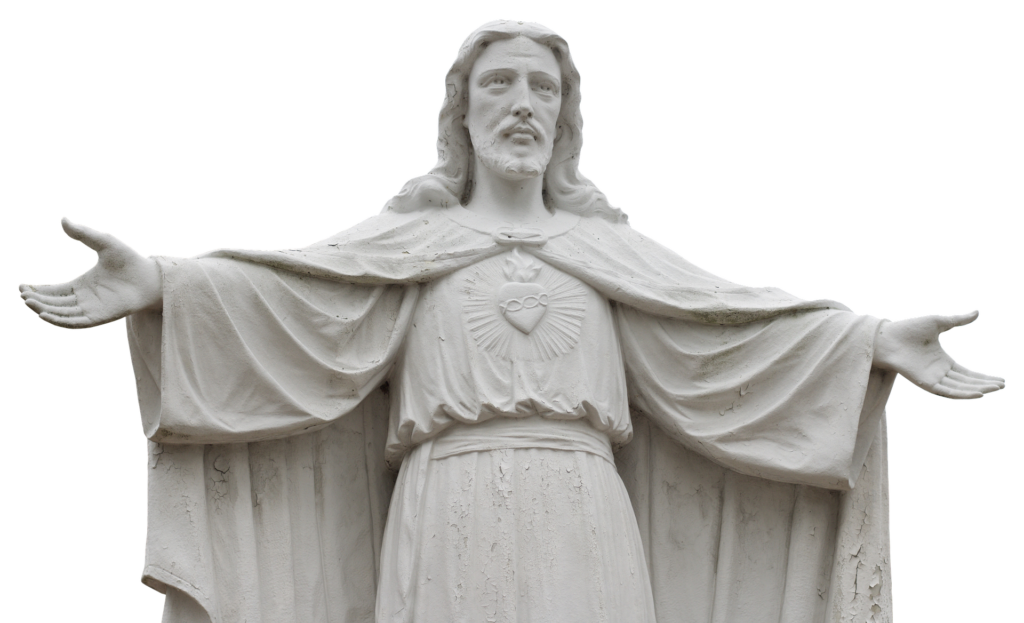
When Isaiah Saw Jesus (Is 6:1-9)
This church needs to be an evangelistic church. There are many in this community who are lost and on the way to hell. We are the ones who can proclaim the gospel and allow God’s gospel to change hearts.
Before we become evangelistic, however, we need to be confronted with God.
Isaiah was confronted with God before he began to prophesy. This chapter constitutes Isaiah’s call. The one Isaiah sees here is Jesus (Jn 12:41). When Isaiah saw Jesus, he saw . . .
A Holy God, vv 1-4
Isaiah saw the Lord exalted, v 1.
He saw the Lord on a throne “high and lifted up.” The Lord was exalted higher than his surroundings. The Lord is higher than anything and is exalted. The Lord is greater than any other being.
His train filled the temple–the hem of his garment filled the temple.
Isaiah saw seraphim in attendance to God, vv 2-3.
He describes these seraphim, v 2.
He heard them praising God, v 3.
They took turns praising God: “one cried to another.” They praised God as holy. Holy is that which is set apart. Here, holy sets God apart from the moral corruption in Judah. God stands above the corruption in our world. This made an impression on Isaiah; 25 times in this book he refers to God as “the Holy One of Israel.”
They said the earth was full of God’s glory.
The response in the temple, v 4.
The foundations shook.
The house was filled with smoke. God would occasionally make his presence known through smoke (Ex 33:9). God is here making his glorious presence known to Isaiah.
Before we can reach others, we must see God as holy. God is greater than we. God is morally perfect, holy (1 Jn 1:5); there is no blemish on God’s record.
An Unholy Servant, vv 5-7
Isaiah’s confession, v 5.
Isaiah saw himself as lost.
Isaiah knew that no one could see God and live (Ex 33:20). He believed his death was imminent due to the vision.
Isaiah saw himself as one with unclean lips.
“Unclean lips” here probably does not refer to sins of the lips. “Unclean lips” would rather refer to sin which would keep Isaiah from praising God with the seraphim. Isaiah, in essence, says, “My sin prohibits me from praising God.”
Isaiah was willing to confess his sin; we, too, need to be willing to acknowledge our sin.
Isaiah believed he dwelt among a people of unclean lips.
Not only would Isaiah’s personal sin keep him from praising God, but so would the sin of the people around him. Isaiah saw his countrymen as sinners as well as himself.
Isaiah’s cleansing, vv 6-7.
A seraph took a burning coal from the altar. The seraph touched Isaiah’s mouth–his guilt and sin were taken away.
If we are to help people come to Christ, we must:
- Acknowledge our own sin.
- Do what God requires for our cleansing.
A Holy God Who Needs Holy Servants, vv 8-9
Isaiah heard the Lord asking, “Whom shall I send, and who will go for us?”
“For us” probably refers to God and the seraphim. God had a message for Judah and he needed someone to deliver that message.
God could ask the same question today–He has a message for this community and he needs individuals to deliver that message.
Isaiah said, “Here am I! Send me.”
He had been confronted with God’s majesty and was now ready and willing to be used by God.
Once we’ve been confronted with God, we need to say, “Here am I! Send me.”
Isaiah was told what to prophesy.
The rest of chapter six tells what Isaiah is to proclaim.
The New Testament gives us what we need to proclaim.
Conclusion
Isaiah saw Jesus in his majesty, and was cleansed of his sin, and offered himself as God’s servant.
God needs men and women who will say, “Here am I! Send me.” If you had been Isaiah, would you have said, “Send me” or “Send someone else?”
This sermon was originally preached by Dr. Justin Imel, Sr., at the Owingsville church of Christ in Owingsville, Kentucky.





